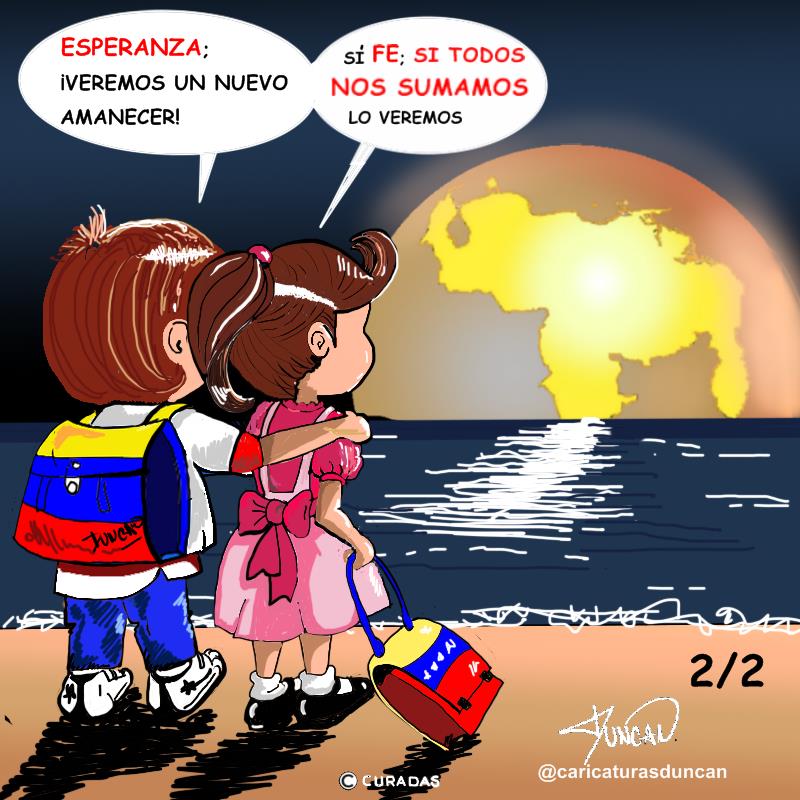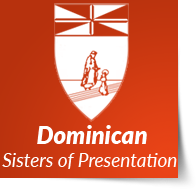Migration, a reality taken on compassionately.
 Sr. Nícida Díaz Leal, Caracas (Venezuela).- The reality of migration in Venezuela today: a reality suffered by our brothers and sisters, and assumed compassionately by consecrated life and Red Clamor Venezuela (Latin American and Caribbean ecclesial network of migration, displacement, refuge and human trafficking). A reality suffered by our migrant brothers and sisters. Why migration in Venezuela? Because of the situation in the country; they are looking for a better future, a better quality of life, there is fear in the face of so much violence and insecurity, lack of food and medicine, precarious basic services: in most states they live without electricity, water and domestic gas. On the other hand, public education has been reduced to two days a week or three hours a day so that teachers and professors can find other jobs to help support their families. Hundreds of thousands of retirees and professional pensioners do not have enough for daily food and medicine; indigenous Venezuelans currently have the highest rate of malnutrition in recent history; public sector workers earn less than 10%.
Sr. Nícida Díaz Leal, Caracas (Venezuela).- The reality of migration in Venezuela today: a reality suffered by our brothers and sisters, and assumed compassionately by consecrated life and Red Clamor Venezuela (Latin American and Caribbean ecclesial network of migration, displacement, refuge and human trafficking). A reality suffered by our migrant brothers and sisters. Why migration in Venezuela? Because of the situation in the country; they are looking for a better future, a better quality of life, there is fear in the face of so much violence and insecurity, lack of food and medicine, precarious basic services: in most states they live without electricity, water and domestic gas. On the other hand, public education has been reduced to two days a week or three hours a day so that teachers and professors can find other jobs to help support their families. Hundreds of thousands of retirees and professional pensioners do not have enough for daily food and medicine; indigenous Venezuelans currently have the highest rate of malnutrition in recent history; public sector workers earn less than 10%.
We are immersed in an unprecedented economic crisis as the State is in misery, and Venezuelan society is infinitely poorer, poverty robs us of hope, the lack of education creates chaos and confusion, the demand for cheap labour and the demand for commercialised sex, impunity and lack of justice make us vulnerable to the disrespect of our legitimate rights, creating a lack of options for the Venezuelan people, which puts the majority at the mercy of forced migration and voluntary surrender to traffickers and traffickers.
What are the consequences for Venezuela?
Fragmented families resulting in those left behind: Children and older adults, mostly left alone in their homes...
How does it affect migrants when they arrive in another country?
The majority of migrants leave without documents because they do not have access to them, as any documentation is unattainable due to the high cost; this reality is aggravated when they manage a job and because they are not legally employed, they run the risk of being exploited at work and threatened because of their illegality, sometimes they are not paid and they are dismissed with nothing... They are used and dismissed when they have already made use of their strength and abilities. Another reality that our migrant brothers and sisters suffer as a result of not having the required documentation is forced begging.
A reality taken on compassionately: by the consecrated life and the Red Clamor Venezuela.
We take the providential opportunity to consolidate alliances with church organisations in the country that make up the Clamor Network with a clear perspective on the mission of welcoming, protecting, promoting and integrating migrants, displaced persons and refugees at risk of becoming victims of human trafficking.
Our goal is to create a team of interdisciplinary facilitators who will be on permanent mobility for a year, accompanying the 19 houses of passage for migrants and returnees that we have in the country, as well as schools and services where we serve and work with the vulnerable population, training and informing, so that they are able to assume and integrate into their daily lives, knowledge on migration, its causes and consequences.
We also want to make visible the difficult situation experienced by migrants who have been victims of trafficking or other hate crimes, to share experiences to learn about the forms of recruitment and exploitation developed by traffickers and exploiters, as well as the routes they use, both within and outside Venezuelan borders. At the moment, we have started emerging courses to promote work with the aim of avoiding migration and preventing prostitution, or any situation that puts people's lives and dignity at risk.
This is a significant experience where synodality becomes a reality, since the Congregations present have their structures at their disposal to make this project possible, which is not ours, but God's, who today asks us to respond from our shared charisms so that "all may be one and the world may believe". There is no other way in our time but the synodal way where we can dream with our eyes open and our feet on the ground, making the Kingdom of God possible in the joy of serving and giving life in community.
All this reality helps me to evoke Marie Poussepin who let herself be surprised by God to respond to the reality of her time, forming in the prevention and care of the lives of so many young people who were at risk, teaching them "to work for a living and to make them capable of avoiding the disorders to which misery and ignorance expose them" (IP). She responded to the urgent needs of her time and formed the community to carry on with her sisters the work of God...We too today are called to continue "in an attitude of permanent conversion in order to live with audacity and prudence the project of Marie Poussepin" (Cfr. 550 GC 2019. P. 25... "to face the risk, to reorient our presences, to change what is necessary, to rekindle the fire of the Spirit and the passion for our own vocation" (550 GC 2019. P. 22).
-
Prev
-
Next >>
- Prev
- Next >>



